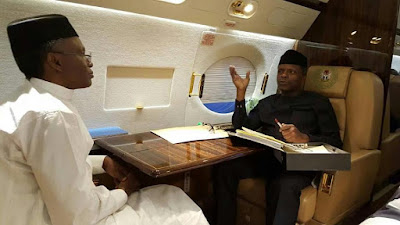By Lashley Oladigbolu, London.
BREAKING - Real progress was made on Thursday as Nigeria, Somalia and Sierra Leone signed under supervisory long term pact by the United Kingdom Department of International Development in London a new multi-lateral partnerships to boost energy access for sub-Sahara countries. Using the hashtag #EnergyAfrica in his Twitter handle, the Minister of State for DFID, MP Grant Shapps announced this following the launching of Enerhy Africa campaign .
Read: SOLAR IS THE FUTURE OF RELIABLE ENERGY SOURCE FOR AFRICA
BREAKING - Real progress was made on Thursday as Nigeria, Somalia and Sierra Leone signed under supervisory long term pact by the United Kingdom Department of International Development in London a new multi-lateral partnerships to boost energy access for sub-Sahara countries. Using the hashtag #EnergyAfrica in his Twitter handle, the Minister of State for DFID, MP Grant Shapps announced this following the launching of Enerhy Africa campaign .
Read: SOLAR IS THE FUTURE OF RELIABLE ENERGY SOURCE FOR AFRICA
 |
| MP Shapps |
 The United Kingdom's Minister of State at Department of International Development, and (acting) Foreign and Commonwealth Office Rt Hon Grant Shapps unveiled the UK long term investment portfolio dedicated to Africa's solar energy sector. MP Shapps made this declaration in central London on Thursday as he launched open Energy Africa campaign.
The United Kingdom's Minister of State at Department of International Development, and (acting) Foreign and Commonwealth Office Rt Hon Grant Shapps unveiled the UK long term investment portfolio dedicated to Africa's solar energy sector. MP Shapps made this declaration in central London on Thursday as he launched open Energy Africa campaign.
The event is being attended by Professor Yemi Osinbajo the Vice-President of NIgeria and other figures among leading African partners of the campaign.
 |
| Prof Osinbajo (right) and Mallam El-Rufai aboard flight to attend London's Energy Africa launch. pic: Laolu Akande |
The thematic campaign aims at providing clean and reliable energy, in the utilization of solar power for millions of African especially sub-Sahara African nations.
NIgerian Vice-President Professor Osinbajo arrived London in the early hours prior to the opening and was accompanied by Kaduna State governor, Mallam Nasir Rufai.
According to United Kingdom government going solar would be a lengthy effort at reaching the more than 600 million people with no electricity in Africa with traditional grid systems.
 "Vast rural areas will have no realistic chance of being connected for decades. We want to accelerate the development of the emerging solar market in Africa.
"Vast rural areas will have no realistic chance of being connected for decades. We want to accelerate the development of the emerging solar market in Africa.
" Together with African governments, investors, businesses, NGOs, think tanks and other donors, DFID will work to increase investment in off-grid energy firms, overcome regulatory barriers, foster innovation, and accelerate delivery of solar energy systems to households across Africa."
It is expected that Nigeria as one of the leading partners in Africa is going to benefit immensely in the new energy investments by signing a multi-lateral solar- energy agreement with the UK Department of International Development. Former United Nations Secretary General Kofi Annan was a witness to this historic partnership.
According to Guardian UK earlier on Wednesday "Nigeria and Sierra Leone signed agreements with Britain to fast-track off-grid solar power to households. A further 12 countries, including Malawi, Senegal and Tanzania, are expected to join the EnergyAfrica alliance shortly.
“Ten years ago this was not possible. Now it can be turned round easily. The lower costs of solar power have made this possible. Nigeria has 96 million people without access to electricity. Most use kerosene. The default energy source should be solar. That was not available 10 years ago. Now it is,” said the Nigerian vice-president Yemi Osinbajo.
Geldof said that mobile phones allowed people even in remote communities to pay for solar electricity as and when they required it. “We needed technologies to exist before you could electrify a continent and with the advent of this thing we all have in our pocket it makes this doable. This is the moment when Africa switches on, powers up and goes for it.”
Without contributing money at this stage, Britain has pledged to use its offices throughout Africa to help cut red tape, unlock new sources of finance and promote policies to expand household-level solar electricity. It plans to work with donors, investors and lenders, industry and NGO groups, said the international development minister Grant Shapps.
“Energy Africa is a new way of delivering aid. It is about using our influence, getting the commercial markets to work for some of the poorest people in the world. This is about more than switching on lights. It means that the day doesn’t end when the sun goes down … it means not having to walk to town when you want to charge your phone … it means saving money because kerosene is one of the most expensive fuels in the world … It means not giving birth by candlelight,” said Shapps.
By Lashley Oladigbolu, London
Additional report culled from Guardian UK.
Additional report culled from Guardian UK.
For more updates follow NUJ Europe @nujenews www.twitter.com/nujenews

No comments:
Post a Comment